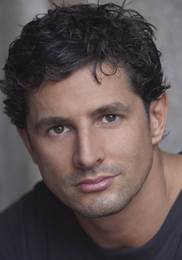 What better way to celebrate the festive period than with the Royal Opera House’s “The Wind in the Willows” at the Vaudeville Theatre. Martin Harvey joined this year’s production to take on the role of Ratty…
What better way to celebrate the festive period than with the Royal Opera House’s “The Wind in the Willows” at the Vaudeville Theatre. Martin Harvey joined this year’s production to take on the role of Ratty…
Harvey’s extensive dance career has included numerous principal roles with the Royal Ballet from Mayerling, Onegin and La Fille Mal Gardée, to Manon and Romeo and Juliet. Harvey’s acting credits include his award-winning performance as Johnny Castle in the West End production of Dirty Dancing, as well as multiple roles in New York, including Richard Eyre’s production of Carmen for the Metropolitan Opera, Twyla Tharp’s Come Fly Away and David Michalek’s Portraits in Dramatic Time.
What’s your dance background?
I started dancing at around four years old in a local school and then I went to the Royal Ballet School at the age of 11 where I trained until [I was] 16. I then started in the Royal Ballet Company at 16. That sounds like a lot of ballet but I did most forms of dance, but specialised in ballet.
What was a typical day like?
A typical day included three to four hours of dancing with ballet class, a pas de deux class, and loads of other forms of dance and choreography. It also included four hours of academic work every day. So that was eight hours a day, six days a week. We would also go Morris dancing on a Sunday. You usually had dance homework as well where you would do stretches and practice on your own. Dance cramming, like trying to do the splits until you split.
What’s a typical day like for you now?
So different. I live in Harlem, Manhattan in New York. On a typical day, I get up and spend time with my wife and our Yorkshire Terrier. I then meditate for about 45 minutes to an hour. I do it as part of my warm up as an actor; meditation spills into actor training but I also do general meditation. I then go and take a class at Steps in New York, normally an hour and a half of ballet or something physical. I will then go for an audition or do some voiceover work or a commercial. I then teach a ballet class for students and in the evening, I go to The Pit in New York and either do a three hour drop-in class or an hour and a half comedy improve.
Have you always wanted to be a performer?
I think that’s got to be true. When I was three (I don’t remember this but my Mum has told me) I used to bang on our TV, it was this little black and white TV and I would sit down next to it and bang on it and ask how I would get inside! So clearly I wanted to do something like that!
When did you start performing professionally?
My first professional gig was when I was seven. I played Michael Darling in Peter Pan at the Aldwych Theatre in London with Bonnie Langford. This production went on tour so I was travelling on tour when I was seven with Tinkerbell, The Lost Boys and Bonnie Langford! After that I worked every year until I went to the Royal Ballet School. I would say that acting was my first love before dance but I think that both arrived at the same time and you can’t distinguish between them as they are both necessary to each other.
What are your rehearsals like for Ratty?
Sweaty, detailed, exhausting and hilarious.
What are the best and worst parts of the creative process for you?
The best part of any creative process is the laughter. The worst part is when it’s not creative. When it’s going well and everyone’s laughing it’s brilliant, but when it’s not creative, that’s just it and the issue is it can’t always be creative.
What are you most looking forward to about the performances?
We get to see our audience quite a lot and seeing the kids really enjoy it and watching their parents so excited about the kids’ reactions is brilliant. It’s like a chain reaction and it is so brilliant to watch. For the actor in me, I get to spend two hours living in a fantasy land! I look forward to seeing kids’ faces light up and also I get to be a kid for two hours and be as wacky as Ratty!
What’s the best thing about performing?
That’s the best thing about performing, but the whole reason I do what I do is characters. Even when I am dancing, singing, performing, I am living and seeing through someone else’s eyes. It’s the ultimate escapism. Some people go swimming or running but for me, when I’m performing I’m completely in a moment, completely immersed in fantasy land. Spending time living life through someone else’s eyes.
What’s one thing you would change about the industry?
Omg, do I only get one?!
What is your advice to an aspiring dancer?
If you love it, don’t look back and don’t take no for an answer.
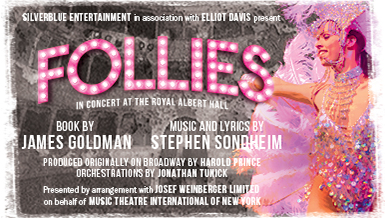 Christine Baranski, Russell Watson and Ruthie Henshall are set to star in a concert production of Stephen Sondheim’s musical Follies at the Royal Albert Hall on 28 April. Directed by Craig Revel Horwood, with choreography by Andrew Wright, the music for the production will be performed by the City of London Philharmonic Orchestra.
Christine Baranski, Russell Watson and Ruthie Henshall are set to star in a concert production of Stephen Sondheim’s musical Follies at the Royal Albert Hall on 28 April. Directed by Craig Revel Horwood, with choreography by Andrew Wright, the music for the production will be performed by the City of London Philharmonic Orchestra.
 Andrew Lloyd Webber’s new musical – School of Rock – is set to open on Broadway in December this year, great news for fans of the film of the same name. Based on the 2003 film, the musical will feature songs from it also, in addition to new music by Lloyd Webber. Previously the mogul had spoken about opening the musical on Broadway, rather than in the UK’s because of the more relaxed child performance rules.
Andrew Lloyd Webber’s new musical – School of Rock – is set to open on Broadway in December this year, great news for fans of the film of the same name. Based on the 2003 film, the musical will feature songs from it also, in addition to new music by Lloyd Webber. Previously the mogul had spoken about opening the musical on Broadway, rather than in the UK’s because of the more relaxed child performance rules.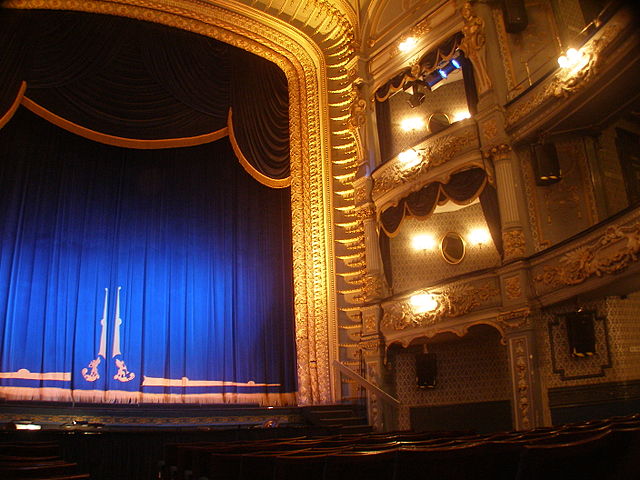 Theatre is renowned for providing an escape from the mundane everyday, by transporting audiences into a story which is nothing like their own. Stories of theatre can contain anything from the sublime to the ridiculous, but either way they are travel machines away from the world outside the theatre door. For much of the time, theatre creates an illusion for its audiences in which what is performed on stage becomes real in the minds of the audience.
Theatre is renowned for providing an escape from the mundane everyday, by transporting audiences into a story which is nothing like their own. Stories of theatre can contain anything from the sublime to the ridiculous, but either way they are travel machines away from the world outside the theatre door. For much of the time, theatre creates an illusion for its audiences in which what is performed on stage becomes real in the minds of the audience.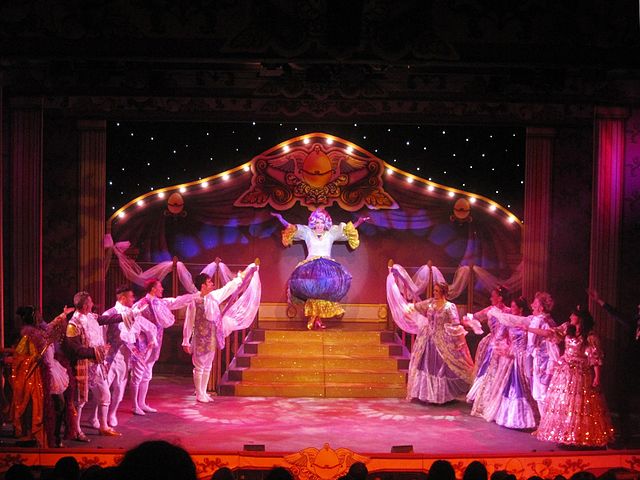 Pantomime has received a facelift in recent years, a “rags to riches” transformation. The 80s and 90s saw a gradual decline in quality, and pantomime was regarded as a cheap entertainment option with some glitter to cover the cracks. Some of regional repertories and smaller companies kept the magic alive and reinvigorated it, however audiences began to demand better and slowly pantomime began to improve.
Pantomime has received a facelift in recent years, a “rags to riches” transformation. The 80s and 90s saw a gradual decline in quality, and pantomime was regarded as a cheap entertainment option with some glitter to cover the cracks. Some of regional repertories and smaller companies kept the magic alive and reinvigorated it, however audiences began to demand better and slowly pantomime began to improve.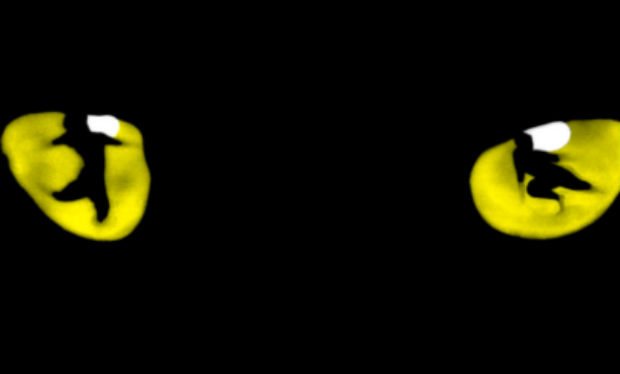 It has been rumoured that West End star Kerry Ellis is set to take over the role of Grizabella from pop princess Nicole Scherzinger in Cats at the London Palladium in 2015, a huge theatrical coup for musical theatre fans. Scherzinger has previously received mixed reactions from musical theatre-goers however for many, the most important aspect of the news is that Cats will most likely be extending further than it’s previously advertised 12 week run.
It has been rumoured that West End star Kerry Ellis is set to take over the role of Grizabella from pop princess Nicole Scherzinger in Cats at the London Palladium in 2015, a huge theatrical coup for musical theatre fans. Scherzinger has previously received mixed reactions from musical theatre-goers however for many, the most important aspect of the news is that Cats will most likely be extending further than it’s previously advertised 12 week run.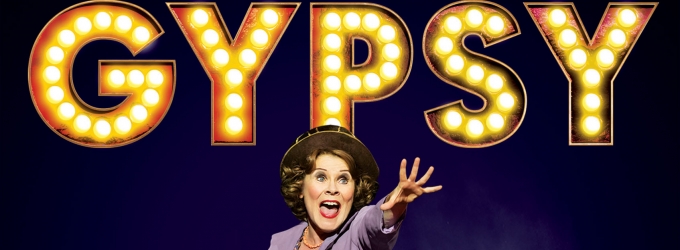 It has been revealed that Imelda Staunton will reprise her role as the iconic Momma Rose in Chichester Festival Theatre’s hit production of Gypsy when it transfers to the West End for a strictly limited season in spring 2015. This will be the first London production of Stephen Sondheim’s much-loved musical for more than 40 years, playing at the Savoy Theatre from 28 March.
It has been revealed that Imelda Staunton will reprise her role as the iconic Momma Rose in Chichester Festival Theatre’s hit production of Gypsy when it transfers to the West End for a strictly limited season in spring 2015. This will be the first London production of Stephen Sondheim’s much-loved musical for more than 40 years, playing at the Savoy Theatre from 28 March. In a co-production with Theatre Royal Plymouth, Frantic Assembly’s explosive Othello will hit the Lyric Hammersmith in the capital from 13 January 2015 following a successful UK tour. The company are said to have radically transformed the Shakespearian classic with its high energy choreography and approach to working artistically.
In a co-production with Theatre Royal Plymouth, Frantic Assembly’s explosive Othello will hit the Lyric Hammersmith in the capital from 13 January 2015 following a successful UK tour. The company are said to have radically transformed the Shakespearian classic with its high energy choreography and approach to working artistically.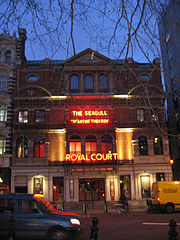 The Royal Court theatre and the Guardian newspaper are set to collaborate on a web-based play series. Directors, playwrights and journalists are all headed to collaborate on a new series of short plays, which will be available to watch online. Making these theatrical works more readily available to audiences all over increases the reach of the arts and puts it in greater stead for the long term.
The Royal Court theatre and the Guardian newspaper are set to collaborate on a web-based play series. Directors, playwrights and journalists are all headed to collaborate on a new series of short plays, which will be available to watch online. Making these theatrical works more readily available to audiences all over increases the reach of the arts and puts it in greater stead for the long term. What better way to celebrate the festive period than with the Royal Opera House’s “The Wind in the Willows” at the Vaudeville Theatre. Martin Harvey joined this year’s production to take on the role of Ratty…
What better way to celebrate the festive period than with the Royal Opera House’s “The Wind in the Willows” at the Vaudeville Theatre. Martin Harvey joined this year’s production to take on the role of Ratty… The Hunger Games phenomenon is heading to the London stage. The unique theatrical experience based on the popular young-adult novels and Lionsgate film franchise will launch in summer 2016 in a new purpose-built theatre next to Wembley Stadium in London. The company is partnering with Dutch media company Imagine Nation and US-based Triangular Entertainment, who will use innovative and immersive staging techniques to bring the dystopian story to the stage.
The Hunger Games phenomenon is heading to the London stage. The unique theatrical experience based on the popular young-adult novels and Lionsgate film franchise will launch in summer 2016 in a new purpose-built theatre next to Wembley Stadium in London. The company is partnering with Dutch media company Imagine Nation and US-based Triangular Entertainment, who will use innovative and immersive staging techniques to bring the dystopian story to the stage.